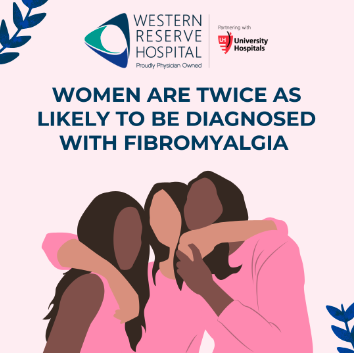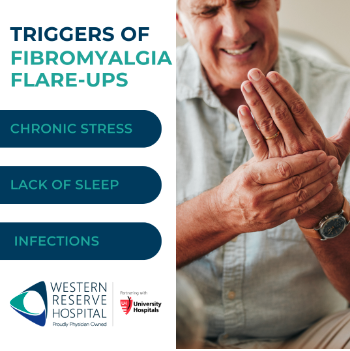Fibromyalgia is a complex chronic condition characterized by widespread pain, tenderness, and a range of other symptoms. In this blog post, we will explore the meaning, causes, and symptoms of fibromyalgia, as well as delve into the diagnosis process and various treatment options available.
Table of Contents
- What is Fibromyalgia?
- Causes of Fibromyalgia
- Who is affected by Fibromyalgia?
- Diagnosing Fibromyalgia
- Risk Factors for Fibromyalgia
- Triggers of Fibromyalgia Flare-ups
- Complications of Fibromyalgia
- Treating Fibromyalgia
- The Importance of Personalized Treatment
- Questions to Ask Your Doctor
- Alternative Treatment Options
- Advancements in Fibromyalgia Treatment
- The Bottom Line
What is Fibromyalgia?
Fibromyalgia is a chronic pain disorder. This condition is characterized by persistent, widespread, musculoskeletal pain that lasts for more than three months. The pain affects both the upper and lower parts of the body, as well as the right and left sides. It is often accompanied by other common symptoms such as fatigue, sleep disturbances, cognitive difficulties, and mood disorders.
Causes of Fibromyalgia
The root cause of fibromyalgia is not fully understood. However, it is believed to be triggered by factors such as prolonged stress, traumatic injuries, and certain infectious diseases like Lyme disease. There is also evidence suggesting a strong genetic predisposition to fibromyalgia, with a higher likelihood of developing the condition if it runs in the family.
Who is affected by Fibromyalgia?
Fibromyalgia can affect individuals of all ages, from children to the elderly. However, it most commonly appears in patients between the ages of 20 and 50. Women are affected approximately twice as often as men, although fibromyalgia can also occur in males, particularly in those with a history of post-traumatic stress disorder.

Diagnosing Fibromyalgia
Diagnosing fibromyalgia involves a process of exclusion (meaning a physician must rule out all other possible medical conditions that may be causing you pain before diagnosing your condition as fibromyalgia). Doctors typically look for widespread pain that persists for more than three months, affecting various areas of the body. Previously, specific tender points were used for diagnosis, but the current criteria focus on persistent, widespread pain.
Risk Factors for Fibromyalgia
Several risk factors contribute to the development of fibromyalgia. Genetic predisposition plays a significant role, and individuals with a family history of fibromyalgia are at a higher risk. Both excessive physical and psychological stress, traumatic injuries, and post-traumatic stress disorder are also known risk factors. Infections, including Lyme disease, and excessive inflammation in the body, such as obesity, may also contribute to the onset of fibromyalgia.
Triggers of Fibromyalgia Flare-ups
Individuals with fibromyalgia should be cautious about potential triggers that can lead to flare-ups. These triggers may include poor quality of sleep, chronic stress, infections, and certain environmental factors. Taking steps to manage these triggers and prioritize self-care can help minimize the frequency and intensity of flare-ups.

Complications of Fibromyalgia
Fibromyalgia can significantly impact an individual's quality of life. The chronic and severe neuropathic pain associated with the condition affects physical performance, sleep quality, relationships, and overall well-being. While fibromyalgia does not cause significant bodily damage, the pain and its related symptoms can profoundly affect daily life, leading to emotional distress and functional limitations.
Treating Fibromyalgia
Though there is no cure for fibromyalgia, there are treatments; that said, treatment is not one-size-fits-all. Fibromyalgia patients require an individualized approach to address their unique symptoms and needs. Treatment often begins with non-pharmacological options such as aquatic exercises, strength training, dietary adjustments (including anti-inflammatory diets), supplements, and complementary therapies like acupuncture or biofeedback. If these approaches are not sufficient, medications can be considered, and a combination of different treatments is often necessary to achieve the best results.
The Importance of Personalized Treatment
Due to the complexity and unique presentation of fibromyalgia, finding the most effective treatment plan may involve a trial-and-error process. It is crucial to work closely with a healthcare professional who will listen, explore various treatment options, and tailor a plan specifically for you. Since no two individuals experience fibromyalgia in the same way, finding the right combination of treatments may require patience and open communication with your healthcare team. The goal is to improve your quality of life and manage symptoms effectively.
Questions to Ask Your Doctor
When discussing fibromyalgia with your healthcare provider, consider asking the following questions:
- Are there other conditions that should be ruled out before confirming a fibromyalgia diagnosis?
- What are the most effective treatment options for my specific symptoms?
- Are there any lifestyle modifications or dietary changes that may help manage fibromyalgia symptoms?
- How can I effectively manage flare-ups and minimize their impact on my daily life?
- Are there any potential interactions or side effects associated with the recommended treatment options?
Alternative Treatment Options
While medications and conventional therapies are commonly used to manage fibromyalgia, several alternative treatments may complement traditional approaches. Physical therapy, including aquatic therapy, can help improve muscle strength and flexibility. Acupuncture has shown promise in relieving fibromyalgia symptoms for some individuals, as has massage therapy. Additionally, anti-inflammatory diets and supplements are being explored, although conclusive evidence of their effectiveness is still lacking. It is essential to discuss alternative therapy options with your doctor to determine their suitability for your specific situation.

Advancements in Fibromyalgia Treatment
The field of fibromyalgia research continues to evolve, leading to new treatment possibilities. One notable development is the use of low-dose naltrexone, which has shown promising results in alleviating symptoms for some patients. Additionally, the use of CBD (cannabidiol) and medical marijuana is being explored as potential options. It is important to stay informed about emerging treatments and discuss them with your healthcare provider to make informed decisions about your care.
The Bottom Line
Fibromyalgia is a complex condition characterized by chronic pain, fatigue, and a range of other symptoms that can significantly impact a person's quality of life. While the exact cause remains unknown, managing fibromyalgia involves a personalized approach that considers the individual's unique symptoms, triggers, and preferences. Working closely with a healthcare team, exploring various treatment options, and making necessary lifestyle adjustments can help individuals with fibromyalgia find relief and improve their overall well-being.
Pain Medicine at Western Reserve Hospital — 100% Patient Centered Pain Treatment
You don’t have to suffer from fibromyalgia. At the Center for Pain Medicine at Western Reserve Hospital we provide the latest innovations in comprehensive pain treatment.
When chronic pain sets in, your life shrinks to fit your pain. Your health, work, and relationships suffer. You become less active. Often, you cannot sleep or suffer from depression. Living with chronic pain is hard, and the anxiety, stress, and anger that accompany it can make the pain even worse. The pain specialists at the Center for Pain Medicine at Western Reserve Hospital can help you conquer your pain with sophisticated new treatments and compassionate, professional care. Contact us at (330) 971-7246 to schedule an appointment and begin the journey to pain relief today.
